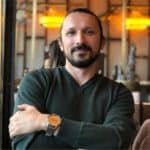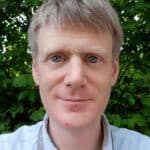-
Asked by puma1act on 13 Mar 2024. This question was also asked by type1bods, rays1juba.
-
Martin McCoustra answered on 13 Mar 2024:
This is what Google says… Science is the process of learning about the natural world through observation and experimentation. Scientists use evidence, along with active thinking, to explain what is happening in the natural world. We also have a lot of fun doing it!
-
-
Andrew Parrott answered on 13 Mar 2024:
That’s a hard question to answer fully but Martin’s answer would be similar to mine. There is a whole subject devoted to defining what science is and what the implications of science are, the philosophy of science.
-
Christie Waddington answered on 13 Mar 2024:
The observation, identification, description, experimental investigation, and theoretical explanation of natural phenomena.
There are so many types of science as well! STEM covers the main ones, but there are so many different subjects you can specialise in. We have so many questions we don’t know the answers to yet! -
Zoe Vance answered on 13 Mar 2024:
It’s a way of looking at things to work out how the world works. As Martin says, it involves observation and experimentation. We observe something, come up with an idea on why it might be that way (a hypothesis) and then do experiments to test whether our idea is right. That’s probably the text book answer at least. There are lots of scientists who probably don’t do a lot of hypothesis testing and are more involved in making new methods/technologies to solve problems – though these things still have to be tested so the same framework does probably apply to that kind of work!
-
Andrew McDowall answered on 13 Mar 2024:
There is a branch of philosophy known as Epistemology that deals with knowledge – what it is, how you gain it and whether it’s justified. Within this there is Empirical knowledge, which handles knowledge gained from the senses and from observation. Science falls into the empirical part of epistemology.
The key to science is the Scientific method – that ideas, hypotheses, lead to predictions, predictions can be tested by experiment and shown to be correct or incorrect. If correct the idea gains strength and may eventually become a theory – a hypothesis that hugely well supported by evidence and testing. If the prediction is incorrect then the hypothesis is false and must be abandoned or modified and tested again. If an idea does not lead to a prediction, if that prediction cannot be tested aginst observable phonomena, if that test cannot show the idea to be correct or incorrect, and the test then repeated again and again with the same result, then it is not science. The scientific method is a constant cycle of testing, analysis, confirmation, correction and prediction.
In this sense every idea within science sits in a permanent state of pending wrongness, just awaiting an observation that tips it into actual wrongness, but some ideas have been so well tested and so well refined that for all our searching we’ve been unable to find why or how they’re wrong so they must be right or very nearly so. This means Science is not (or perhaps that is “Should not”) be dogmatic, fixed immovably to an idea, but is (should be) self-correcting and self-healing, which helps explain why it works even with creatures so messy and confused, story driven and tribal as humans. It changes the description of the world to match the world whereas people have a tendency to seek to change the world to match their description of it.
There are certain assumptions that form part of science. It is naturalistic, it deals with an observable and testable reality, one that is shared by all observers, and one that is governed by natural laws.
There are different camps within science as to whether science aims at and suceeds at finding absolute truth, or whether absolute truth cannot be found by scientific means – it just a model that matches truth closely. I tend to fall into the third camp, that suggests it doesn’t matter whether a theory is absolutely true or is absolutely not true, but whether the outcome is useful. It doesn’t matter to me if science is truth, or models truth without being truth, so long as it works.
-
Ravindu Ranaweera answered on 13 Mar 2024:
This one made me thing a bit. Good question. To me, it is the study of everything around us. You can explain most things using science.
-
-
Rosa Sanchez-Lucas answered on 14 Mar 2024:
Adding some more details, all the science names finishing with -logy, that proceed from -logos the greek for “study”. So it is all the methodologies applied to understand and study a specific process or idea
-
Michael Schubert answered on 14 Mar 2024:
That’s a very big question! I think of science as the approach we use to explore ourselves and the universe around us. When we have questions, science is the framework we use to answer them. Of course, there are all different kinds of science and scientists, but we all use similar ways of thinking and similar “rules” to find out the answers to our questions.
“Rules” might be things like: you have to make sure the answer you’re getting isn’t just a coincidence. You have to be able to repeat what you’ve done. You must be truthful about what you do and the answers you get.
-
Carlos Rivera answered on 15 Mar 2024:
Science is the best way so far (but by no means the absolute best) we have to turn the knowledge that nature has into a language that we as humans can understand.
-
Festus Ejikemeuwa answered on 15 Mar 2024:
Science is the pursuit and application of knowledge and understanding of the natural and social world following a systematic methodology based on evidence.
-
Hayley Pincott answered on 22 Mar 2024:
What an interesting question. I think we can all come up with an answer that’s very personal to each one of us. For me it’s all about wanting to find the answers to the questions we ask, it’s as simple as that. However, be aware that the process in doing this isn’t always easy and doesn’t always work, but when everything eventually works it’s completely worth it.
Related Questions
do you play any science games maybe on ps xbox to help yu out
what is the funniest thing about science?
How did you become interested in science when you were growing up?
hey! i just saw you profile, and you looked pretty cool. just curios, what's your favourite typre of science (eg.
if you where not a scientist what would you be?
Is it useful to play Dota 2? will this help me in the future?
how old were you when you loved science
What would you suggest for young school students to do to become a good scientist ? for example what to learn about .
Did you think you would be a scientist when you grew up?
how long have you been working as a stem ambassador
Latest Questions
-
How do you make new drugs
-
how many plants do you study normally?
-
what happens when a person whos sick gets a DNA while the person is sick what do you do
-
What are polysaccharides?
-
how many nuclear explosions happen in the world
-
how does your job effect your daily life ? (2 Comments)
-
why does nuclear waste glow in the dark? (1 Comment)
-
how to you deal with problems you come across when doing your research? (2 Comments)
-
If you have been emotionally invested (focusing on anxiety if you suffer with it, dementia etc) do you find it
-
what motivates you to carry out your research? (1 Comment)
Latest Comments
-
how does your job effect your daily life ? (2 comments)
-
why does nuclear waste glow in the dark? (1 comment)
-
what motivates you to carry out your research? (1 comment)
-
how to you deal with problems you come across when doing your research? (2 comments)
-
How long have you been a scientist for (2 comments)







Comments